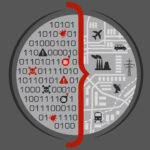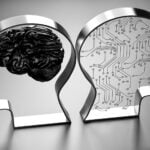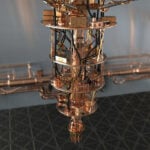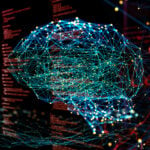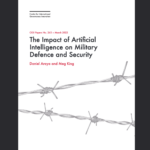Google Engineer who Claimed Google AI is Sentient has Just Been Fired by Google

Earlier this year, a Google engineer named Blake Lemoine garnered significant media attention when he claimed that LaMDA, Google’s advanced language model, had achieved consciousness. Lemoine, part of Google’s Responsible AI team, interacted extensively with LaMDA and concluded that the AI exhibited behaviors and responses indicative of sentient consciousness.
Blake Lemoine shared transcripts of his conversations with LaMDA to support his assertions, highlighting the AI’s ability to express thoughts and emotions that seemed remarkably human-like. His belief in LaMDA’s sentience was primarily rooted in the depth and nuance of the conversations he had with the AI. During his interactions, Lemoine observed that LaMDA could engage in discussions that were remarkably coherent, contextually relevant, and emotionally resonant. He noted that the AI demonstrated an ability to understand and express complex emotions, discuss philosophical concepts, and reflect on the nature of consciousness and existence. These characteristics led Lemoine to assert that LaMDA was not merely processing information but was exhibiting signs of having its own thoughts and feelings. He argued that the AI’s responses went beyond sophisticated programming and data processing, suggesting a form of self-awareness. This perspective, while intriguing, was met with skepticism by many in the AI community, who argued that such behaviors could be attributed to advanced language models’ ability to mimic human-like conversation patterns without any underlying consciousness or self-awareness.
Google, along with numerous AI experts, quickly refuted Lemoine’s claims, emphasizing that LaMDA, despite its sophistication, operates based on complex algorithms and vast data sets, lacking self-awareness or consciousness. They argued that the AI’s seemingly sentient responses were the result of advanced pattern recognition and language processing capabilities, not genuine consciousness. The incident sparked a widespread debate on the nature of AI consciousness, the ethical implications of advanced AI systems, and the criteria needed to determine AI sentience. Lemoine’s claims were largely viewed with skepticism in the scientific community, but they brought to light the complexities and ethical considerations surrounding the development of increasingly advanced AI systems.
In the latest news, Google just fired Lemoine, saying that he violated security rules by sharing the internal information.
For more see: The Google engineer who thinks the company’s AI has come to life (11 June 2022) and Google fires Blake Lemoine, the engineer who claimed AI chatbot is a person (25 July 2022).
For 30+ years, I've been committed to protecting people, businesses, and the environment from the physical harm caused by cyber-kinetic threats, blending cybersecurity strategies and resilience and safety measures. Lately, my worries have grown due to the rapid, complex advancements in Artificial Intelligence (AI). Having observed AI's progression for two decades and penned a book on its future, I see it as a unique and escalating threat, especially when applied to military systems, disinformation, or integrated into critical infrastructure like 5G networks or smart grids. More about me, and about Defence.AI.
